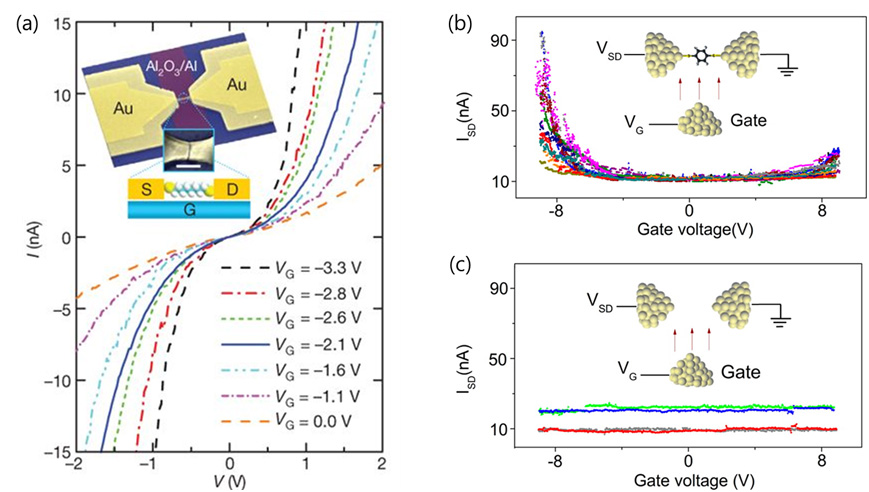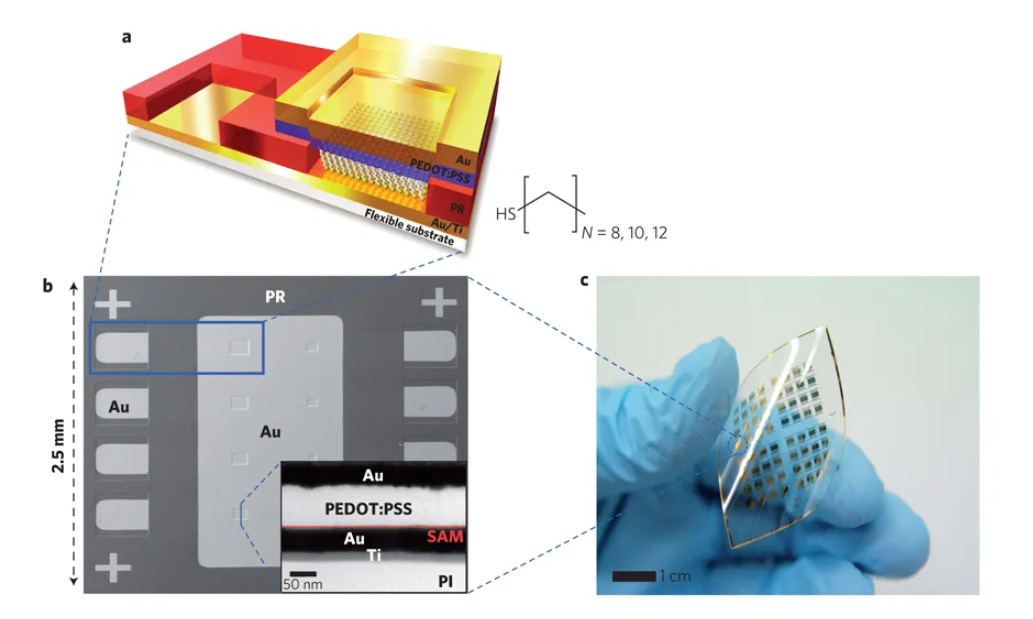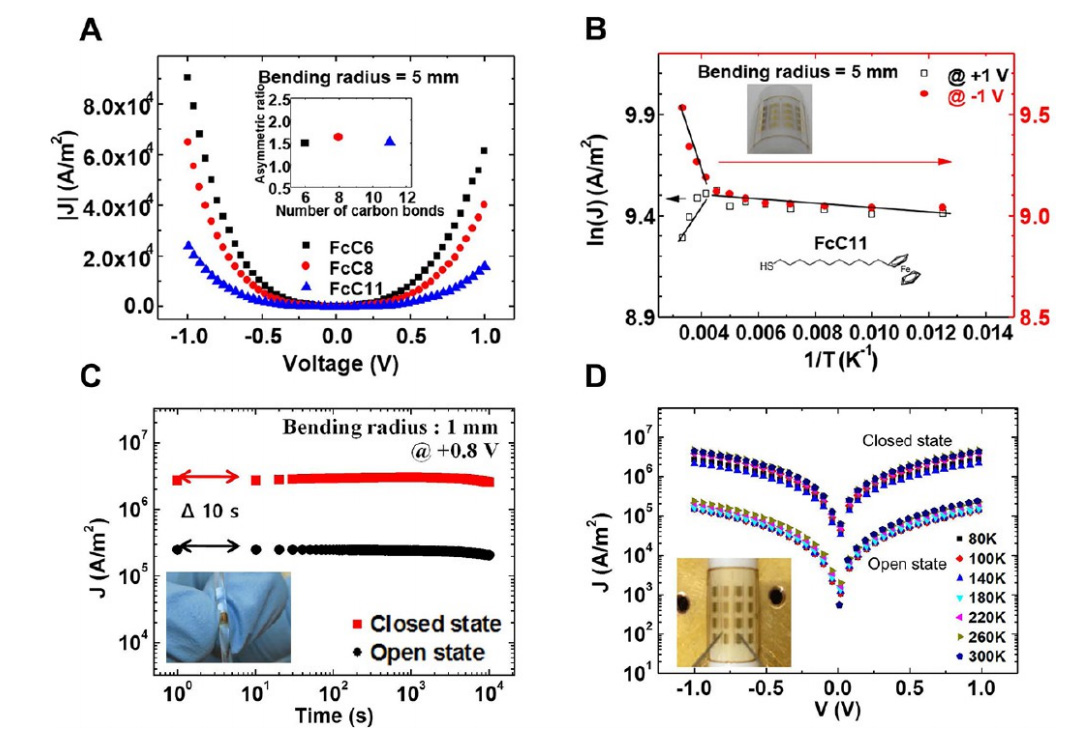Molecular Electronics
Molecular electronics is a nanotechnology of using a molecule or molecular monolayers as an active component of electronic devices. In the past several years, molecular wire, diode, switch, transistor, and memory devices have been demonstrated.
We fabricate molecular devices and study underlying physics to understand molecular scale charge transport, specifically about conduction mechanisms, interaction of charge carriers with molecular vibrations, electrode-molecule interfaces, etc. We have also fabricated various functional molecular devices such as diode, photo-switch, transistor, etc.
1. Single Molecular Electronic devices
The control of charge transport in an active electronic device depends intimately on the modulation of the internal charge density by an external node. We reported the observation of such solid-state single-molecule devices fabricated by either electromigrated nanogap construction or mechanically controlled break junction (MCBJ), in which transport current is directly modulated by an external gate voltage. Our findings demonstrate that true molecular transistors can be created by molecular orbital gating in an electronic device.

Ref.Hyunwook Song et al.,"Observation of Molecular Orbital Gating", Nature, 462, 1039-1043, (2009)
Ref.Dong Xiang et al., "Three-terminal single molecule junctions formed by mechanically controllable break junctions with side gating", Nano Lett. 13, 2809 (2013)
Ref. Dong Xiang et al., "Mechanically Controllable Break Junctions for Molecular Electronics", Advanced Materials, 25(35), 4845–4867 (2013)
2. FlexibleofMolecular Electronic Devices
Large-area devices containing extremely thin films of molecular materials represent the ultimate scaling of flexible devices based on organic materials. We fabricate and characterize molecular electronic devices based on self-assembled monolayers of alkyl or aromatic thiol molecules on flexible substrates. We demonstrated the reliability of molecular devices and characterized charge transport natures of the devices under severe mechanical stress.

Ref.Sungjun Park et al., "Flexible Molecular-Scale Electronic Devices", Nature Nanotechnology, 7, 438-442, (2012)
3. High-Yield Functional Molecular Electronic Devices
Recent days, various types of molecular reactions such as change of chemical bonding, redox process, photo- or charge induced conformational change, phase transition in molecular electronic devices have been widely investigated in order to utilize functional molecules for realizing molecular rectifiers, photoswitches, thermoelectric devices, etc. We carried out in-depth study on redox-induced rectification of ferrocene based molecular devices and photoswitching functionality by conformational change of diarylethene molecular devices.


